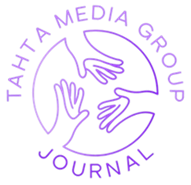Affective Learning Model of Education Islamic Religious Education in Improving Character Building
DOI:
https://doi.org/10.55080/jpn.v4i1.185Keywords:
Affective Learning, Islamic Religious Education, CharacterAbstract
This study aims to determine the implementation of the affective learning model of Islamic religious education in the formation of character building at the Baitul Qur'an Mlarak Islamic Boarding School (PAS: Pesantren Anak Sholeh), as well as its supporting and inhibiting factors. The method used is qualitative research, which produces descriptive data through observation and interviews with individuals involved in the learning process. The results show that the implementation of effective learning in MaIrasah Ibtidaiyah PAS is carried out through various habituations, such as reciting the Koran together, praying dhuhr and dhuhr in the congregation, and providing examples to students through shaking hands every morning. Supporting factors found include a good system of school activities, the competence of teachers who work together, and the willingness of students to excel. However, there are also inhibiting factors, such as the diverse backgrounds of students, the lack of cooperation between parents and teachers, and the different individual development of students. In conclusion, despite the challenges, the implementation of effective learning models in MI PAS shows positive results in shaping student character, with support from the school environment and student commitment, but further efforts are needed to overcome inhibiting factors so that learning can run more effectively and optimally.
Downloads
References
Ahmad, S. A. (2020). From Oral to Written Da’wah: A Study on the Development of Preaching Methods in Indonesia. International Journal of Psychosocial Rehabilitation, August 14–15. https://doi.org/10.20944/preprints201608.0126.v1
Alam, L. (2020). Islamic Education Policy Contestation in the Era of The New Order and the Reformation. Ruhama: Islamic Education Journal, 3(2), 59–79. https://doi.org/10.31869/ruhama.v3i2.2223
Aliabadi, R. B., & Weisi, H. (2023). Teachers’ strategies to promote learners’ engagement: Teachers’ talk in perspective. International Journal of Educational Research Open, 5(July). https://doi.org/10.1016/j.ijedro.2023.100262
Anand, B. (2024). Types of Learning: Domains of Learning-Cognitive, Affective, and Psychomotor, Learning Theories, Experiential Learning. ResearchGate, September. https://www.researchgate.net/publication/383704726
Fitriadi, F., Herpratiwi, H., Yulianti, D., Setiyadi, A. G. B., Hariri, H., Sunyono, S., Haenilah, E. Y., & Mukhlis, H. (2025). Enhancing critical thinking in elementary education: A systematic review of effective learning models. Multidisciplinary Reviews, 8(6). https://doi.org/10.31893/multirev.2025157
Megawati, M., & Prahmana, R. C. I. (2025). The Role of Character Education in Supporting Transformative Education in the Digital Era : A Systematic Review. Edu Cendikia: Jurnal Ilmiah Kependidikan, 1489–1503. https://doi.org/10.47709/educendikia.v4i03
Mukhlisin, M. (2024). Affective Education Assessment in Islamic Religious Education. Jurnal Ilmiah Mahasiswa, 1181–1195. https://doi.org/10.24815/jimps.v9i4.33716
Rangarajan, R. (2025). Relational pedagogy for inclusion in (in)action: Exploring relational encounters in teaching and learning at a rural small school in India. International Journal of Educational Research, 132(October). https://doi.org/10.1016/j.ijer.2025.102620
Republik Indonesia. (2003). Undang-Undang No. 20 Tahun 2003 tentang Sistem Pendidikan Nasional. In Zitteliana (Vol. 19, Issue 8, pp. 159–170).
Rosenzweig, E. Q., Harackiewicz, J. M., Hecht, C. A., Priniski, S. J., Canning, E. A., Asher, M. W., & Hyde, J. S. (2020). College Students’ Reasons for Leaving Biomedical Fields: Disenchantment With Biomedicine or Attraction to Other Fields? Journal of Educational Psychology. https://doi.org/10.1037/edu0000456
Sarpong, J., & Adelekan, T. (2024). Globalization and education equity: The impact of neoliberalism on universities' mission. Policy Futures in Education, 22(6), 1114–1129. https://doi.org/10.1177/14782103231184657
Setiawan, I., Widyawan, D., & Puspitorini, W. (2024). Intervensi sosial-emosional dan pengembangan karakter terhadap persepsi diri siswa disertai aktivitas fisik. JPPI (Jurnal Penelitian Pendidikan Indonesia), 10(3), 284. https://doi.org/10.29210/020243983
Sholihah, A. M., & Maulida, W. Z. (2020). Pendidikan Islam sebagai Fondasi Pendidikan Karakter. QALAMUNA: Jurnal Pendidikan, Sosial, Dan Agama, 12(01), 49–58. https://doi.org/10.37680/qalamuna.v12i01.214
Sholikah, F. R., & Arif, S. (2023). Identifikasi Kemampuan Berpikir Kritis dalam Memecahkan Masalah. Jurnal Tadris IPA Indonesia, 3(3), 262–275. https://doi.org/10.21154/jtii.v3i3.2043
Sugiyono, D. (2016). Metode Penelitian Kuantitatif, Kualitatif, dan R&D.
Sulistiani, I., & Nugraheni, N. (2023). Makna Guru Sebagai Peranan Penting dalam Dunia Pendidikan. Jurnal Citra Pendidikan, 3(4), 1261–1268. https://doi.org/10.38048/jcp.v3i4.2222
Susmiyati, S., Zurqoni, Z., Abdillah, M. H., & Saugi, W. (2023). Challenges of Affective Assessment of Islamic Religious Education Learning in Merdeka Curriculum. Al-Hayat: Journal of Islamic Education (AJIE), 7(2). https://doi.org/10.35723/ajie.v7i2.675
Wang, X., Jaafar, W. M. W., & Sulong, R. M. (2025). Building better learners: exploring positive emotions and life satisfaction as keys to academic engagement. Frontiers in Education, 10(March). https://doi.org/10.3389/feduc.2025.1535996
Downloads
Published
How to Cite
Issue
Section
License
Copyright (c) 2025 Muhammad Nasruddin ‘Azis, Mohammad Rohman Wahono, Ahmad Habiburrahman

This work is licensed under a Creative Commons Attribution 4.0 International License.









